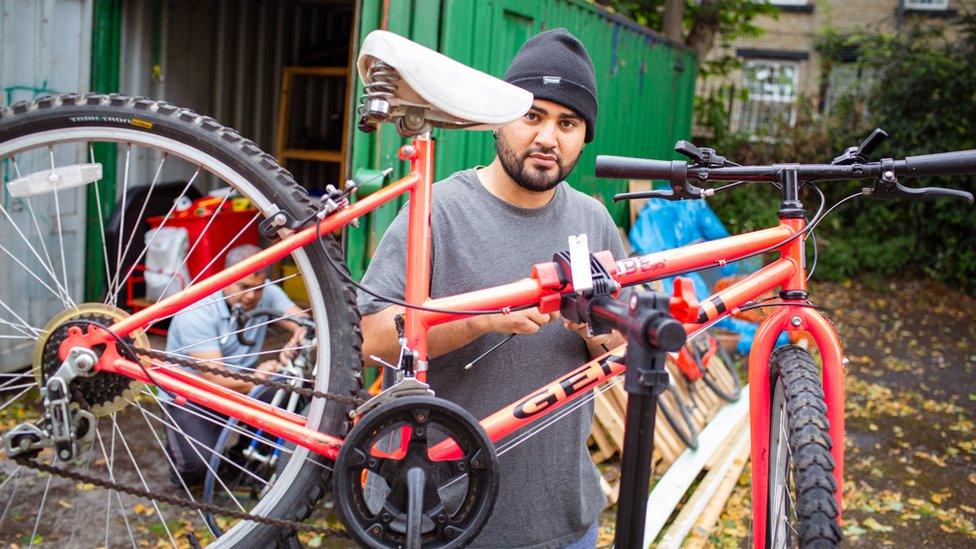Afghanistan: People at Kabul airport flee Taliban with just a suitcase
- Published
The BBC's Lyse Doucet reports from Kabul airport, where many Afghans are fleeing the Taliban regime
It hits you like a brick as soon as you put your foot on the tarmac at Kabul international airport.
The intensity, the urgency, the darkness of this hour. In every direction, there are the huge grey military transport planes from the US and many other countries. Military helicopters are in the sky.
Heading towards every single plane are long queues of Afghans. The lines don't seem to end. They have been told they can only bring one suitcase and the clothes they are wearing, as they leave their country behind - the country now controlled by the Taliban.
But it's not just the country they are leaving. They are leaving behind the life they lived, and for the young educated generation, the life they built up, the dreams they cherished over 20 years.
There are said to be 14,000 people inside this airfield, controlled by US military, waiting to board.
Freelance journalist Bilal Sarwary was among those who made it onto the airfield, having left behind everything he had worked so hard to build, save for a few pairs of clothes and his young family.
Allow X content?
This article contains content provided by X. We ask for your permission before anything is loaded, as they may be using cookies and other technologies. You may want to read X’s cookie policy, external and privacy policy, external before accepting. To view this content choose ‘accept and continue’.
Sarwary, a former BBC journalist, had planned to raise his daughter - named Sola, meaning "peace" - in his home country, the place he has spent 20 years covering, starting as a fixer and translator in 2001.
Instead, he is hoping she will one day understand the decision he has made to leave.
"Today's the day that a generation of Afghans have buried their dreams and aspirations and our lives," he said.
"This city to us is our home, despite its contradictions we called it home, we're raised from here. We hope the Taliban can learn from the lessons of the past… and we can prove that we can move away from the tanks and bullets, towards a road where everyone can see themselves."
About 17,000 people have left Afghanistan via Kabul airport in the last week, according to the US. It is not known how many were Afghan citizens given visas for their work with international governments and organisations amid fears they may be targeted by the Taliban.
Many are professionals and graduates, and Sarwary fears what this "brain drain" will mean for Afghanistan. Afghanistan, he said, was "a country where good people, they don't grow on trees".
Outside the airport gates, there are another 10,000 or more hoping to get onto the airfield - a crush of people wanting to leave however they can.
The longer it has taken, the more desperate the crowd has become. Reporters at the scene describe Saturday as one of the worst days, with several women known to have lost their lives as the people surged forward.
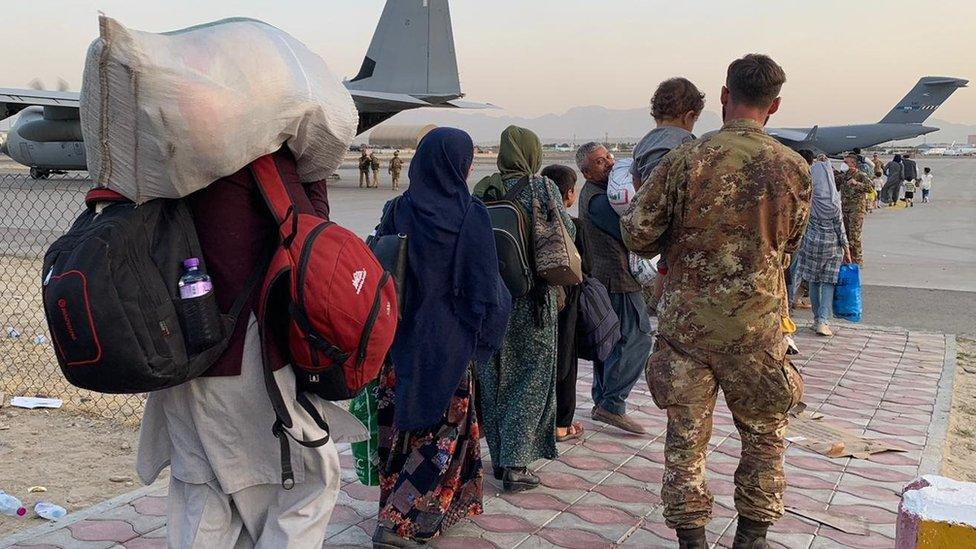
According to Nato, they are among the at least 20 people who have died in and around the airport since the Taliban entered the city a week ago.
Sunday was reported to be calmer at the gates, although witnesses report Taliban fighters firing into the air and using batons in order to keep people in line, according to news agency Reuters.
Internationally, concerns continue to grow that countries will not be able to get their people - nationals and the Afghans who have worked alongside them - out before the end of the month, at which point the US has said it will pull out.
On Saturday the European Union's foreign policy chief Josep Borrell warned that it was "mathematically impossible" to evacuate so many in the next nine days.
As for Bilal Sarwary, he was adamant that just because he was leaving, it did not mean he was ready to give up.
"Our affair with Afghanistan is the affair of fatal love, no matter what happens we will never give up on it," he said.
Additional reporting by Flora Drury in London

Have you been affected by this story? Do you have an experience to share around the evacuations from Afghanistan? Please do email haveyoursay@bbc.co.uk, external.
Please include a contact number if you are willing to speak to a BBC journalist. You can also get in touch in the following ways:
WhatsApp: +44 7756 165803
Tweet: @BBC_HaveYourSay, external
Please read our terms & conditions and privacy policy
If you are reading this page and can't see the form you will need to visit the mobile version of the BBC website to submit your question or comment or you can email us at HaveYourSay@bbc.co.uk, external. Please include your name, age and location with any submission.
Related topics
- Published22 August 2021
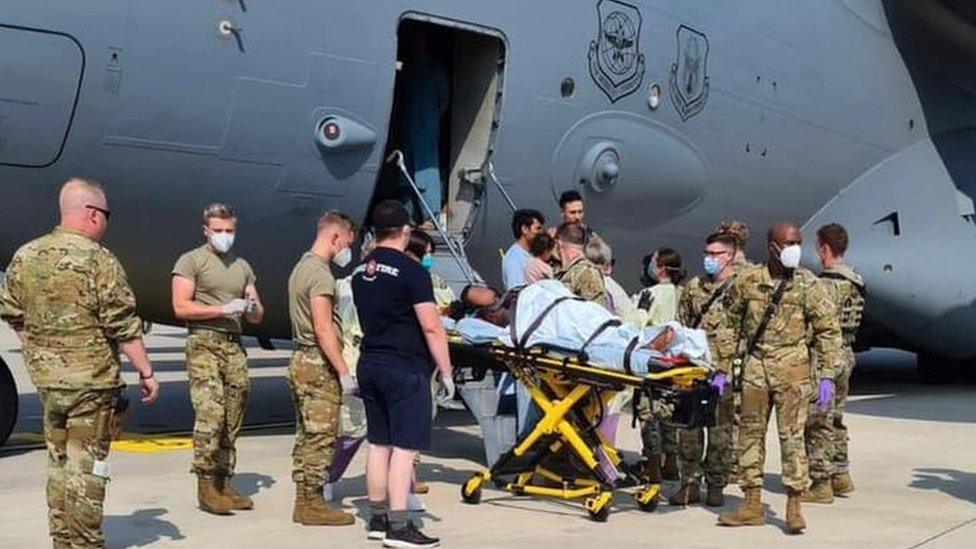
- Published22 August 2021
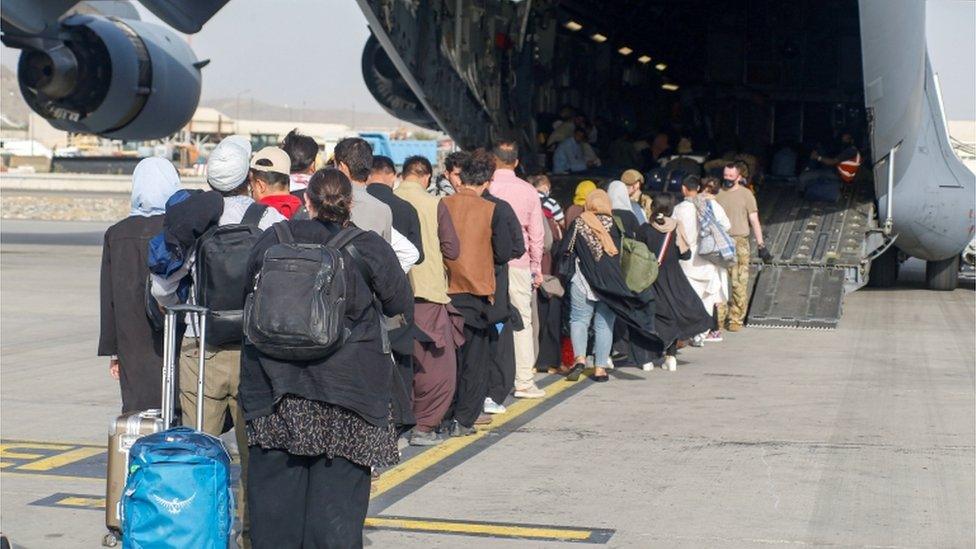
- Published22 August 2021
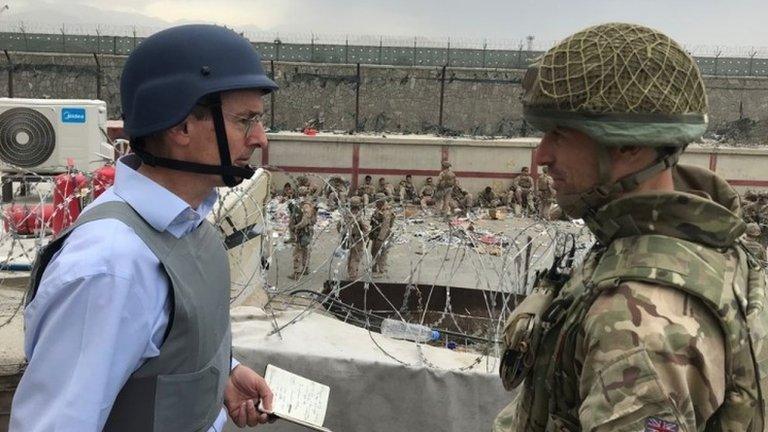
- Published22 August 2021
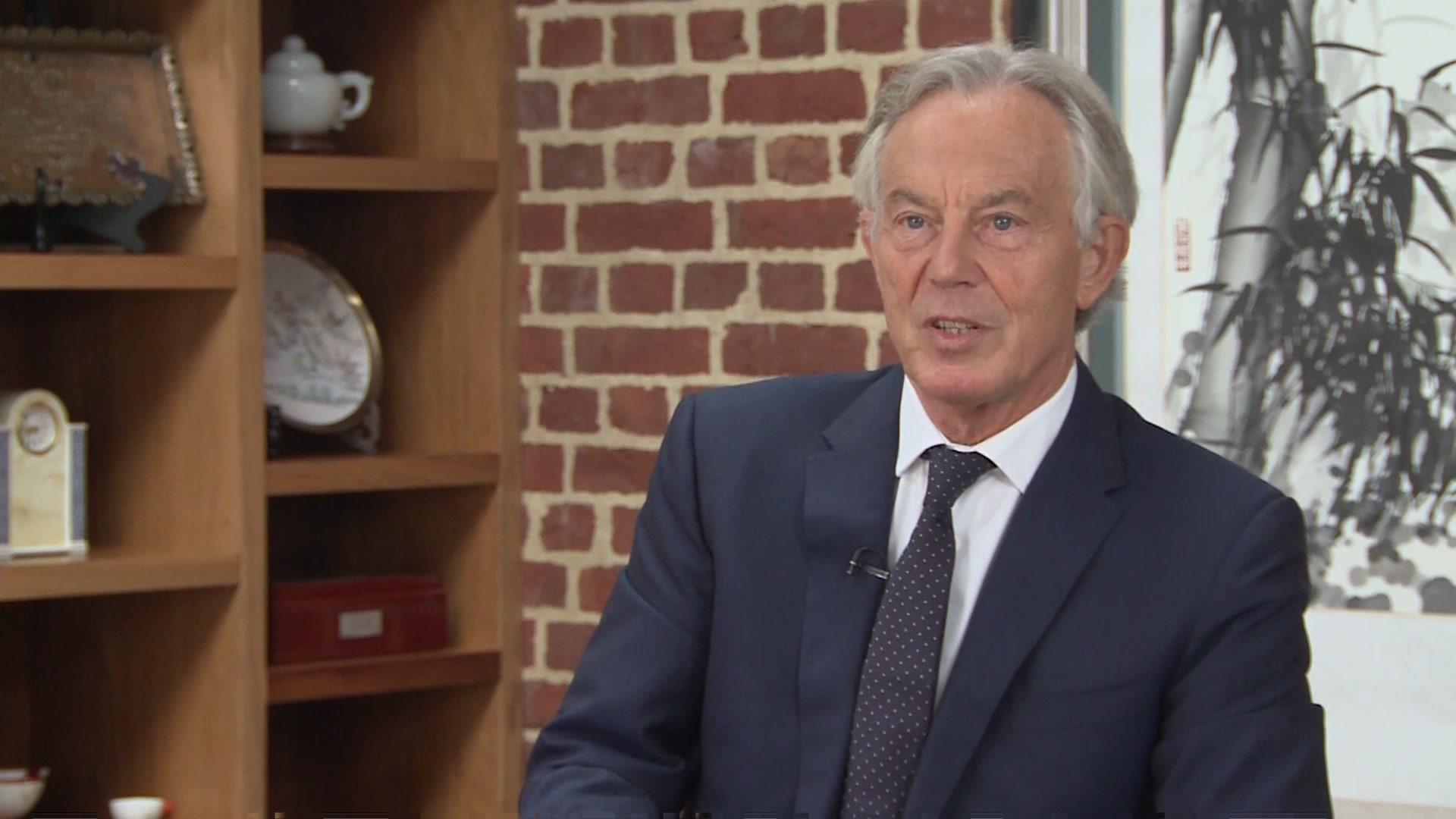
- Published22 August 2021
